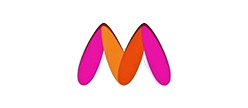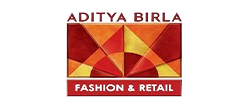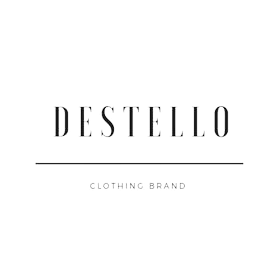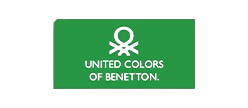The Course
BSc. in Fashion and Apparel Design
Make an impact on the world of fashion
These undergraduate programmes are designed for participants looking to enter the design world, and provide a complete education allowing participants to acquire the necessary knowledge and skills to pursue a career in the chosen field.
Location
Bengaluru
Duration
3-years (full-time)
Eligibility
10+2/PUC/Higher Secondary Education with 40% (in any stream)
Certificate Type
Bachelor Degree
Lateral Entry Eligibility
3 year Diploma
Degree Issuing Authority
Bengaluru City University
Programme Overview
BSc. in Fashion and Apparel Design offer students an insight in the process of conceptualising and designing for the fashion and apparel industry. The programmes curriculum is curated to provide technical training and inspire them to think beyond conventional practices. They will be equipped with creative and analytical skills that meet industry standards to help them become successful designers.
The fashion industry is evolving and expanding at a rapid pace creating dynamic opportunities. Hence, the curriculum has been upgraded to align with the needs of the fashion business. In addition, all academic and extracurricular activities have been incorporated for the students’ overall development.
- PROGRAMME OBJECTIVE
- LEARNING OUTCOMES
- CURRICULUM
- EVALUATIONS
- ASSESSMENTS METHOD
- CAREER OPPORTUNITIES
- PLACEMENTS
- Provide knowledge and the techniques involved in Fashion and Apparel Design.
- Acquire awareness of the design process and tools required to create a successful clothing line.
- Deliver hands-on experience through the use of industry related technologies and software.
- Encourage students to attain an in-depth understanding of design, illustration, pattern-making, material investigation, visual communication, and the methods involved in the fashion industry.
- Mentor students to adopt research methodologies in design and sustainability.
Graduates of the BSc. in Fashion and Apparel Design, will be able to:
- Apply the skills, techniques, and principles of design to develop collections with technical precision.
- Adopt global and environmental concepts of sustainability.
- Create a fashion portfolio that is a collection of their inspiration, their interpretation of trends, presentation boards etc. that gives an insight into the students’ distinctive voice and vision.
- Be able to use innovative research-oriented techniques to gauge consumer behaviour and fashion trends in order to develop well-crafted product lines.
Semester 1
- Language – I
- Language – II
- Textile Science
- Fundamentals of Fashion Design
- Basics of Pattern Making and Sewing
- Open Elective
- Skill Enhancement Course
- PE – Yoga
- Health & Wellness
Semester 2
- Language – I
- Language – II
- Dyeing & Printing
- Fashion Design & Illustration
- Garment Detailing – I
- Open Elective
- Skill Enhancement Course
- PE – Yoga
- NCC/NSS/R&R/CA
Semester 3
- Language – I
- Languauge – II
- Fashion Art & Design
- Garment Detailing – II
- Apparel Computer Aided Design
- Open Elective
- Skill Enhancement Course
- PE – Yoga
- NCC/NSS/R&R/CA
Semester 4
- Language – I
- Languauge – II
- Indian Textiles & Costumes
- Textile & Apparel Testing
- Apparel Production
- Open Elective
- Skill Enhancement Course
- PE – Yoga
- NCC/NSS/R&R/CA
Semester 5
- Apparel Quality Management
- Fashion Draping
- Export Trade & Documentation
- Fashion Accessories
- World Textiles & Costumes
- Forecasting & Trend Analysis
- Surface Design Techniques
- Skill Enhancement Course
Semester 6
- Fashion Marketing & Merchandising
- Digital Fashion Studio
- Fashion Styling
- Fashion Portfolio & Design Collection
- Visual Merchandising
- Digital Fashion Marketing
- JD Design Awards
- Internship
- Case Studies – Explores industry settings.
- Industrial Visits – These trips are essential as it arms students with industry trends and requirements.
- Self-Study – Students independently discover and analyse study topics taught by their instructors.
- Classroom Lectures – These lectures provide vital information to the entire cohort.Classroom lectures are important as it provides information and guides students to understand the subjects better.
- Seminars – Gain insights, broaden horizons and get a different perspective about respective fields of study.
- Studio / Workshop / Laboratory / Practical Sessions – Get practical exposure of the design as a discipline.
- Demonstrative – Utilization of necessary technical subjects.
- Group Work – Encourages students to build a collaborative work experience.
- Internal Assessments – Assesses students’ learning progression during the entire duration of the course.
- Projects – In-class and independent research projects undertaken to exhibit understanding of the subject.
- Semester Examinations – Undertaken to test subject knowledge.
- Presentations – Applicable in some subjects to assess understanding of the topic and helps to build confidence, communication skills and professionalism.
- Examinations – time-based assessment to test subject understanding.
- Presentations – used in some subjects to assess subject understanding and demonstrate communication skills, professionalism, critical thinking and to argue interpretations/ findings.
- Portfolio Assessment – Demonstrates learning from concept stage to execution.
- Fashion Designer
- Costume Designer
- Illustrator
- Fashion Buyer
- Stylist
- Trend Analyst
- Fashion Product Manager
- Sewing Technician
- Educator
- Blogger
- Clothing/Textile Technologist
- Merchandise Planner/Allocator
- Fabric Researcher
- Print Designer
- Pattern Designer
Location
Goa
Duration
3-years (full-time)
Eligibility
10+2/PUC/Higher Secondary Education with 40% (in any stream)
Certificate Type
Bachelor Degree
Lateral Entry Eligibility
3 year Diploma
Degree Issuing Authority
Goa University
Programme Overview
Students who enrol in the 3-year BSc. in Fashion Design can learn about the business and creative side of the fashion and apparel industry. The intensive course prepares students with strategic and practical skills. Graduates of the fashion design degree programme display competence in a wide range of areas, including garment construction, 2D and 3D design, marketing, merchandising, entrepreneurship, textile art, fabric science etc.
Graduates of the fashion and apparel design degree programme display competence in a wide range of areas, including garment construction, 2D and 3D design, marketing, merchandising, entrepreneurship, textile art, fabric science etc. Knowledge, skills, and a flexible mindset are essential to succeed in this rapidly developing, fiercely competitive industry. The course material encompasses the most recent developments in the fashion and apparel industry. For the overall growth of the students the institute also organises extracurricular activities.
- PROGRAMME OBJECTIVE
- LEARNING OUTCOMES
- CURRICULUM
- EVALUATIONS
- ASSESSMENTS METHOD
- CAREER OPPORTUNITIES
- PLACEMENTS
- Learn the intricacies of the fashion design industry.
- Acquire the expertise for creating a successful clothing brand.
- Gain practical experience in developing solutions to current market needs using a suite of technologies and software used in the industry today.
- Students are trained to conduct research in the fields of design and sustainability.
BSc. in Fashion and apparel Design alums will acquire the technical fashion design knowledge, methods, and practices to:
- Use abilities gained in rendering, design, and computing to showcase ideas, explain design development concepts, and transform ideas into technical requirements.
- Incorporate sustainable ideas of global, environmental, and economical in nature into the fashion business.
- Complete projects efficiently within the set deadlines.
- Make a fashion portfolio showcasing individualism through a consolidation of vision and inspiration boards and collections.
- Research consumers’ preferences, the market, and the latest style trends to design successful collections.
Semester 1
- Foundation Art
- Fundamentals of Design
- Management Process & Organisational Behaviour
- English I – Communicative English: Spoken & Written
- Basics of PMT & GMT
- Sustainable Development & Ecology
- Constitutional Values & Obligations
Semester 2
- Fashion Thinking & Design Process
- Textiles & Accessories in Interior
- Performance Process of Goan Folk Drama: Gawada Jagor
- English II – Digital Content Creation in English
- Basics of Fashion Illustration
- Green Energy System
- Life Skills
Semester 3
- PMT & GMT – I
- Fibre & Yarn Science
- Apparel Production
- Basic Embroderies
- Modern Indian Languages – Hindi / Konkani / Marathi / Kannada / French & Portuguese
Semester 4
- PMT & GMT – II
- Fashion Illustration – I
- Fabric Science & Analysis
- Computer-Aided Design – I
- Traditional Textiles & Embroideries of India
- Modern Indian Languages – Hindi / Konkani / Marathi / Kannada / French & Portuguese
Semester 5
- PMT & GMT – III
- Fashion Illustration – II
- Fashion Merchandising
- Computer-Aided Design – II
- Textile Wet Processing
- Internship
Semester 6
- Draping
- Fashion Illustration – III
- Fashion Retail Management
- Fashion Portfolio
- Styling & Accessories
- JD Design Awards
- Case Studies– Explores real-life industry settings.
- Industrial Visits– These trips are required as they teach students industry trends and requirements.
- Self-Study– Students study independently to support subjects taught in class.
- Classroom Lectures– The lectures provide vital information to the students.
- Seminars – Encourages students to understand the purpose of the respective industry.
- Studio / Workshop / Laboratory / Practical Sessions– Helps students develop creative and practical abilities.
- Demonstrative– Utilized for necessary technical subjects.
- Group Work– Encourages students to work as a team.
- Internal Assessments – Provides an evaluation of a student’s learning progression during the entire course.
- Projects– Classroom and individual projects undertaken to establish understanding of the subject.
- Semester Examinations – Assessments to examine students’ grasp of the subject.
- Presentations – Used in some subjects to measure subject understanding and demonstrate good communication skills, professionalism and critical thinking.
- Portfolio Assessment – Reflects students’ artistic, creative, innovative, comprehensive and conceptual growth.
- Fashion Designer
- Costume Designer
- Illustrator
- Fashion Buyer
- Stylist
- Trend Analyst
- Fashion Product Manager
- Sewing Technician
- Educator
- Blogger
- Clothing/Textile Technologist
- Merchandise Planner/Allocator
- Fabric Researcher
- Print Designer
- Pattern Designer
FAQ
Q: What is BSc. in Fashion and Apparel Design about?
A: It is a programme focussing on fashion aesthetics, garment construction, and textile exploration.
Q: What are the course timings?
A: The 3-year full-time course timings are from 9:30 am to 4:30 pm.
Q: What will I learn in this course?
A: You will gain skills in design principles, trend analysis, garment creation, design through the incorporation of technology, fashion illustration etc.
Q: Are there placement opportunities?
A: Yes, the programme facilitates internships and industry connections.
Q: How important are industry visits?
A: Industry visits provide practical insights into current fashion trends and practices.
Q: Why choose this course?
A: If you are passionate about fashion, this programme nurtures your design talents and opens doors to the fashion industry.
Q: What are JD Design Awards?
A: JD Design Awards is a platform for graduating students to showcase their creative work, offering exposure within the design realm in front of a dynamic audience comprising industry experts and the media.
Q: Is the course beneficial?
A: Certainly, it equips you with practical skills and knowledge for a successful career in the fashion industry.
Q: What is the infrastructure of JD School of Design?
A: The programme provides modern studios and resources for a rich learning environment.
Q: Can I join through lateral entry?
A: Lateral entry options are available based on prior qualifications and experience.
Q: Does JD School of Design offer scholarships and fee concessions?
A: Yes, JD School of Design offers a variety of scholarships and fee concessions to help students access education. For more information check here .













